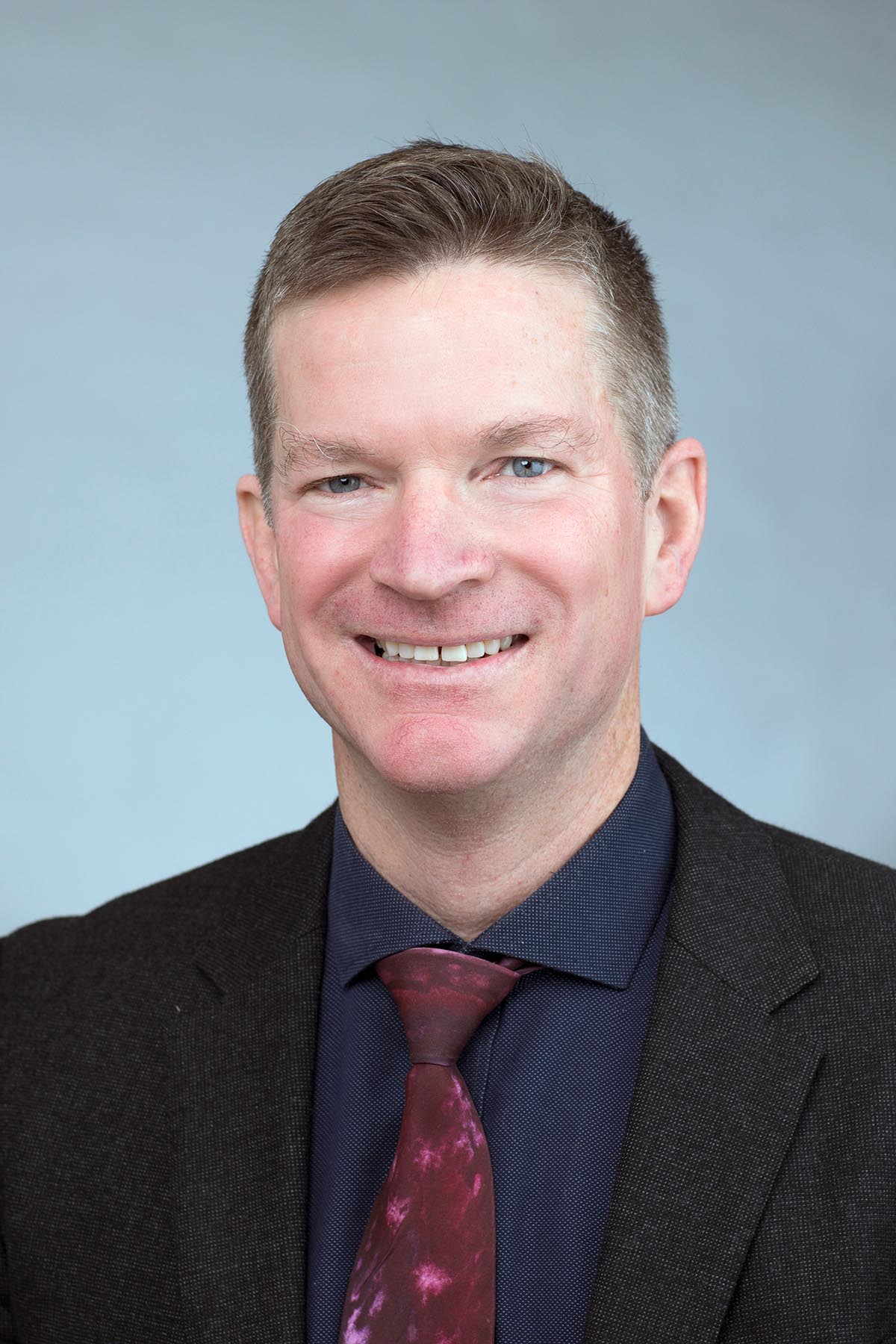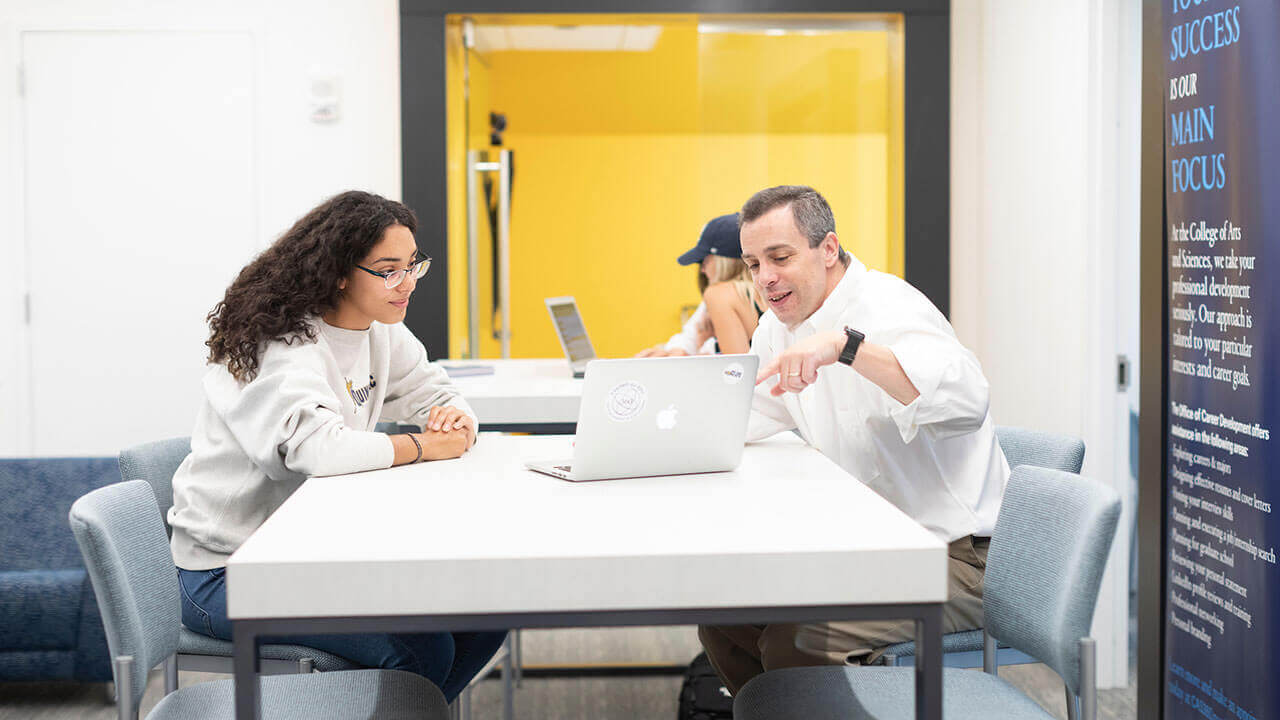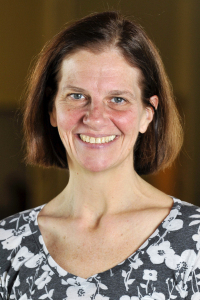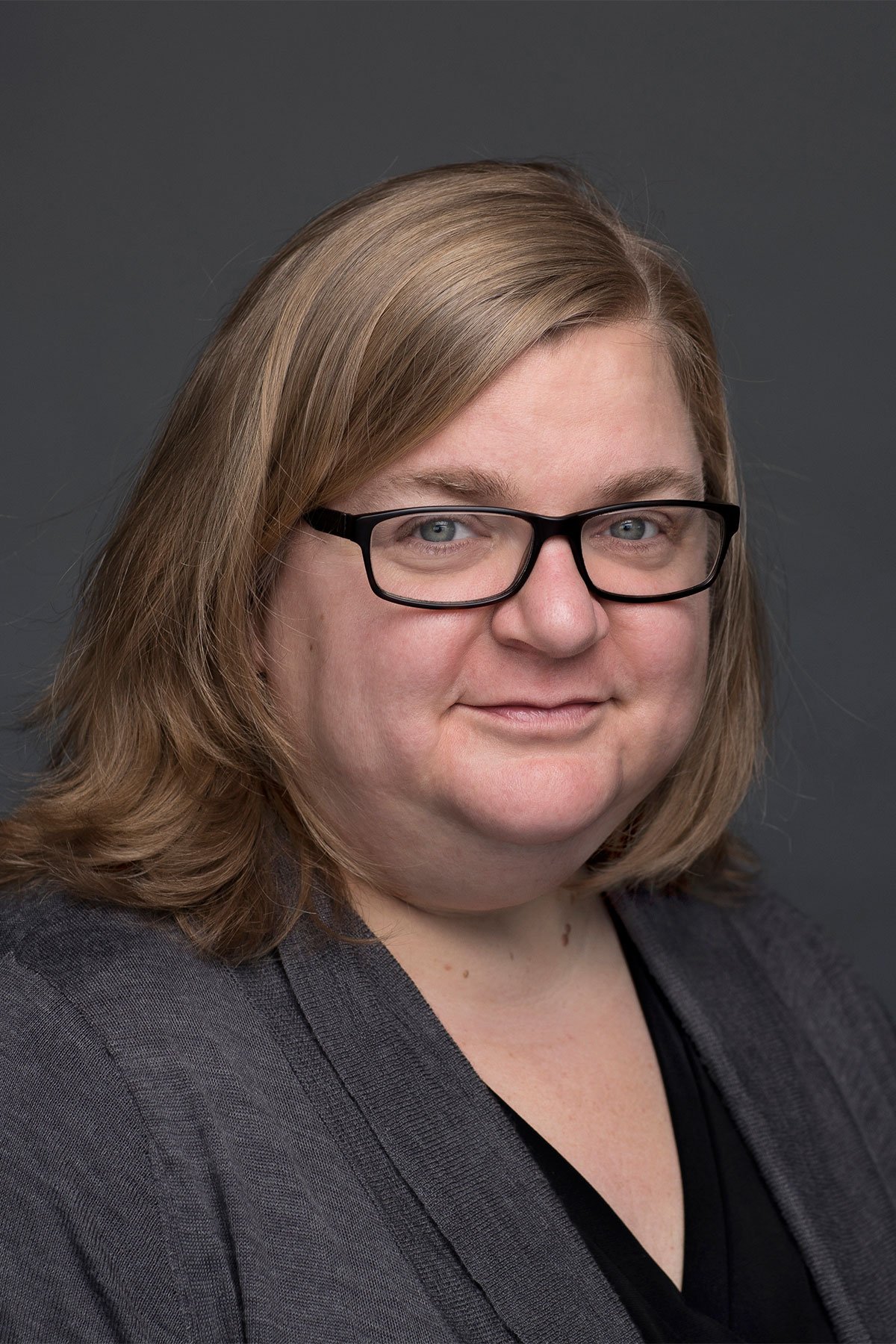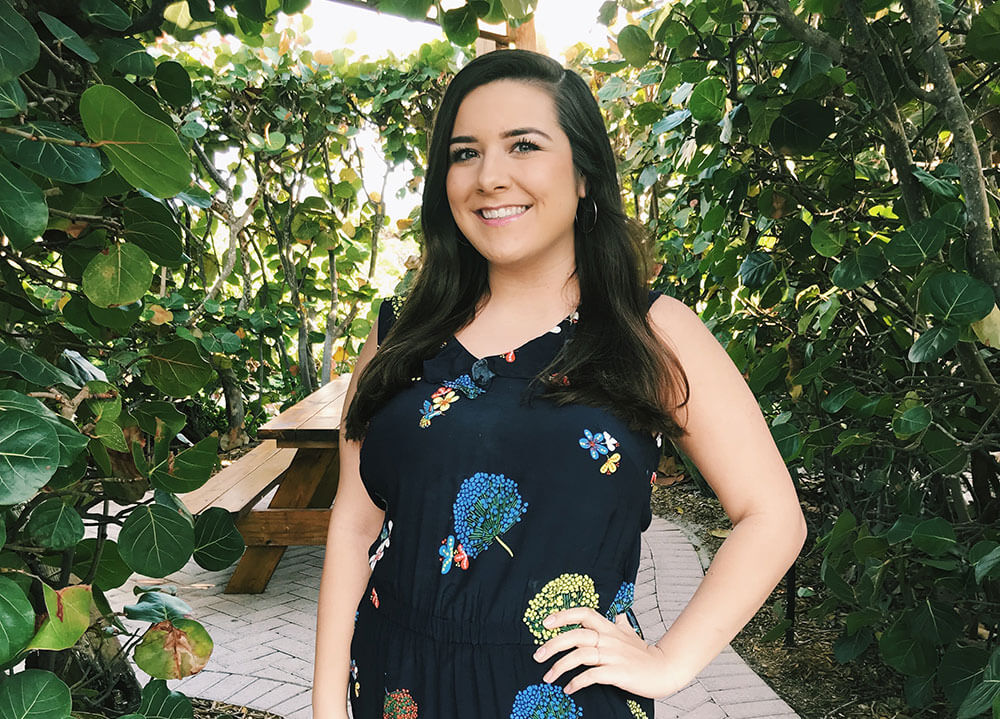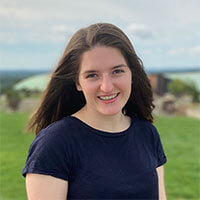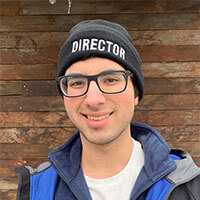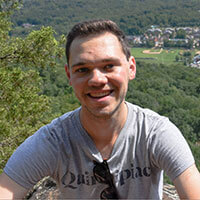Occupational therapy student Jessica Winstanley ’21, MOT ’23, became a peer catalyst to make every incoming Quinnipiac student’s First-Year Seminar experience as positive and eye-opening as hers was.
Winstanley enjoyed exploring ethical and logical problems inherent in current events with her classmates. She also recalls her peer catalyst motivating fellow students from many other majors to share their unique perspectives.
“The purpose of FYS aligned so well with my own personal and academic values that I felt compelled to continue on that path,” said Winstanley, who is enrolled in Quinnipiac’s Dual-Degree BS/MOT (4+1.5) program.
Winstanley has worked as a peer catalyst and peer catalyst mentor in First-Year Seminars and other classes since her sophomore year. In that role — a paid position — she fosters an interactive and collaborative learning environment, provides academic support when needed, and helps students transition smoothly to college life.
“Our work in and out of the classroom, be it in-person or remote, is remarkably beneficial to the flow and dynamics of a class,” she said.
Winstanley recalled helping a struggling student connect meaningfully with course material, develop her thoughts and ideas more coherently, manage her workload more efficiently and improve her standing with her professor — in just a few weeks.
“I not only saw her produce higher quality work each week, but she displayed more confidence in the classroom and began participating more in discussions,” Winstanley said.
Success stories like this have given Winstanley a deep understanding of what her role truly entails.
“We are as much bridges for students to connect with peers and professors as we are for them to connect with course material,” she said. “I hope that all incoming students utilize their PCs as a support and a resource to make the most out of their experience.”
